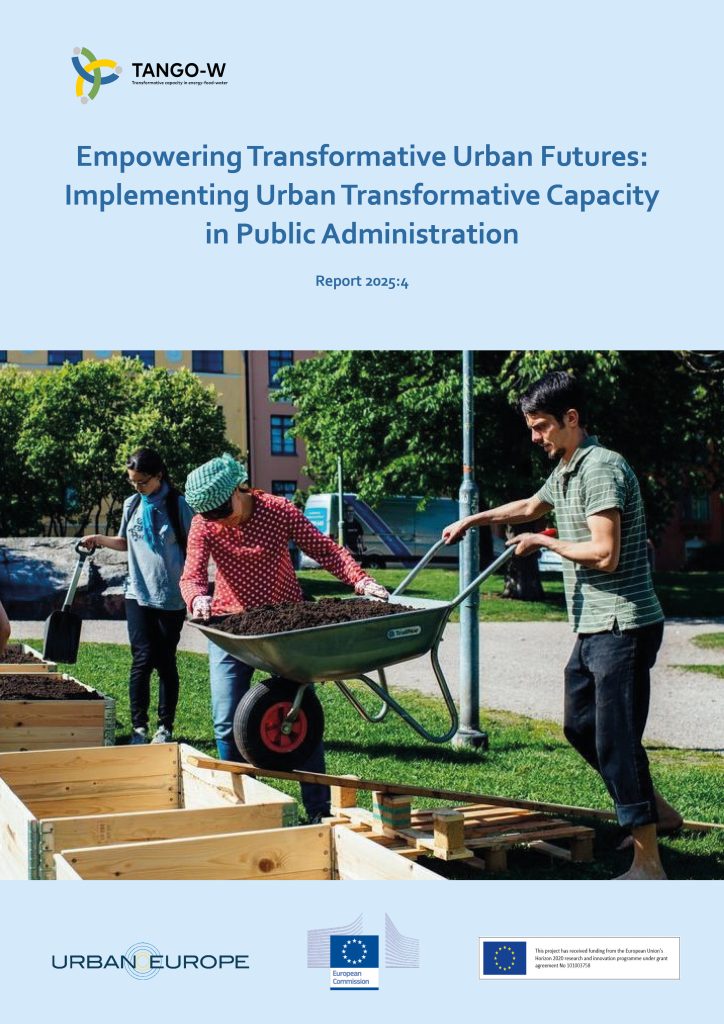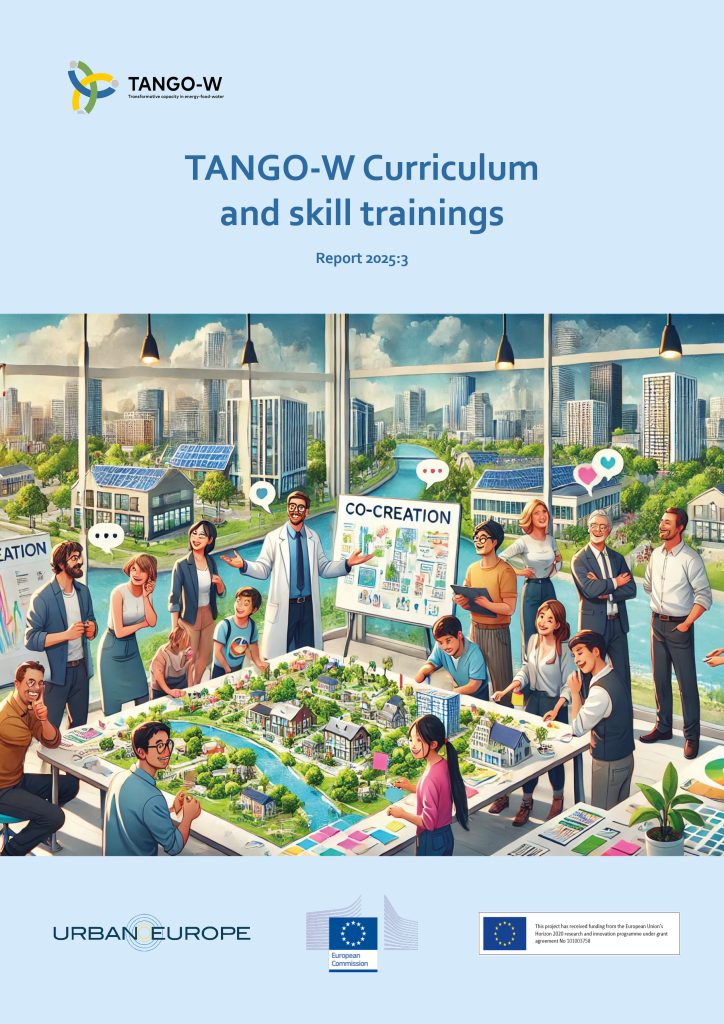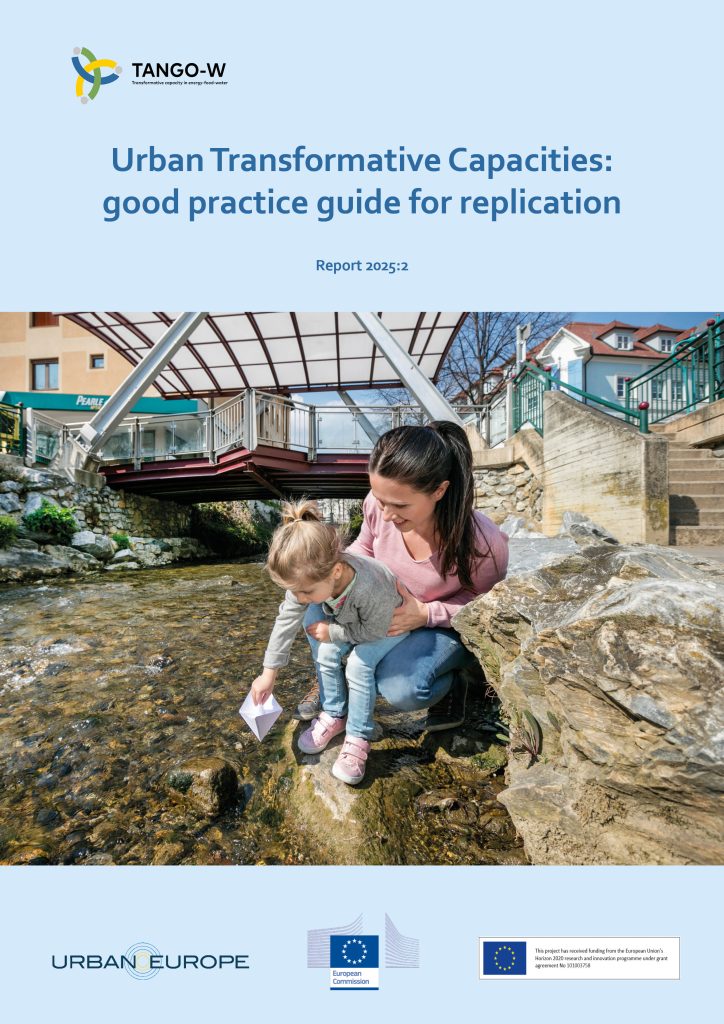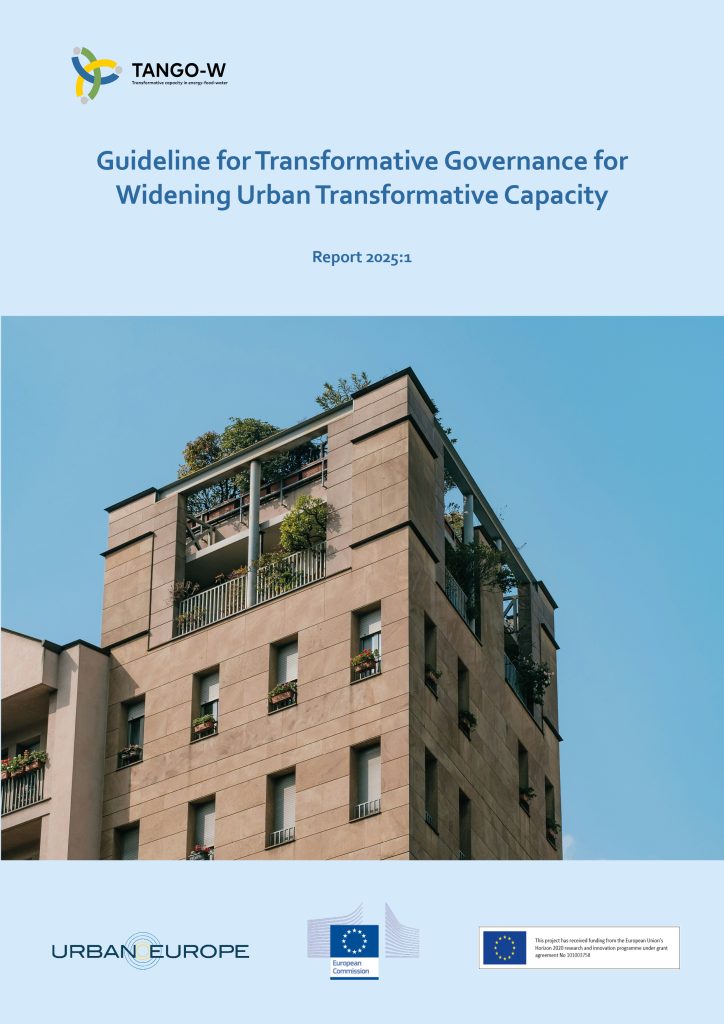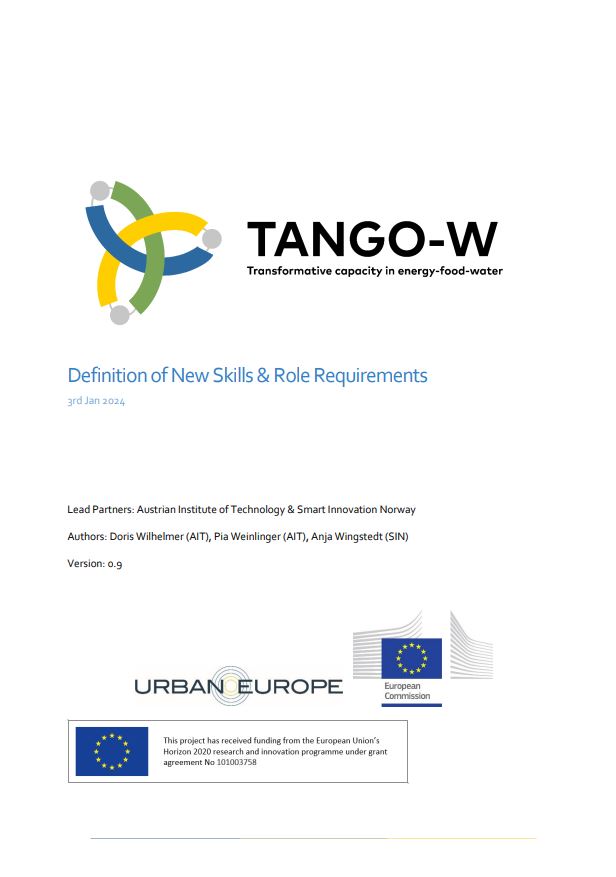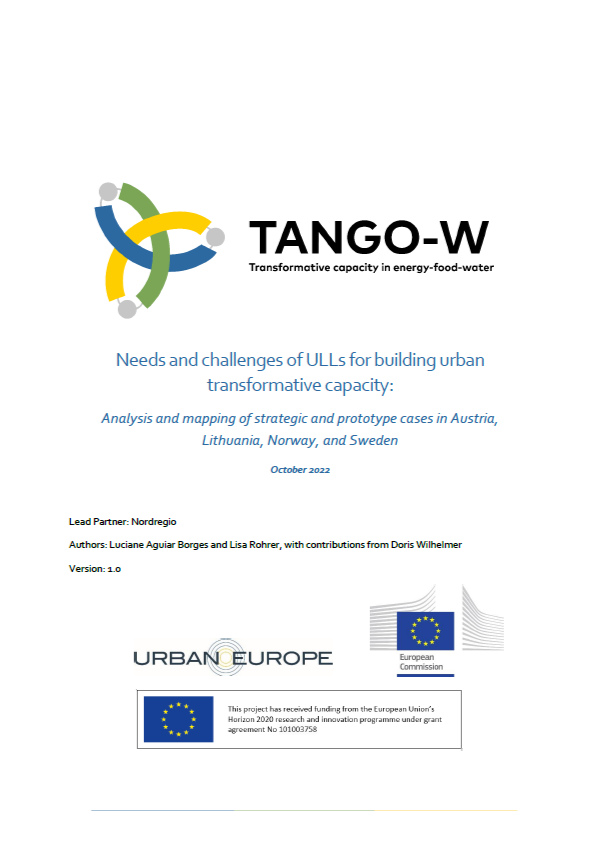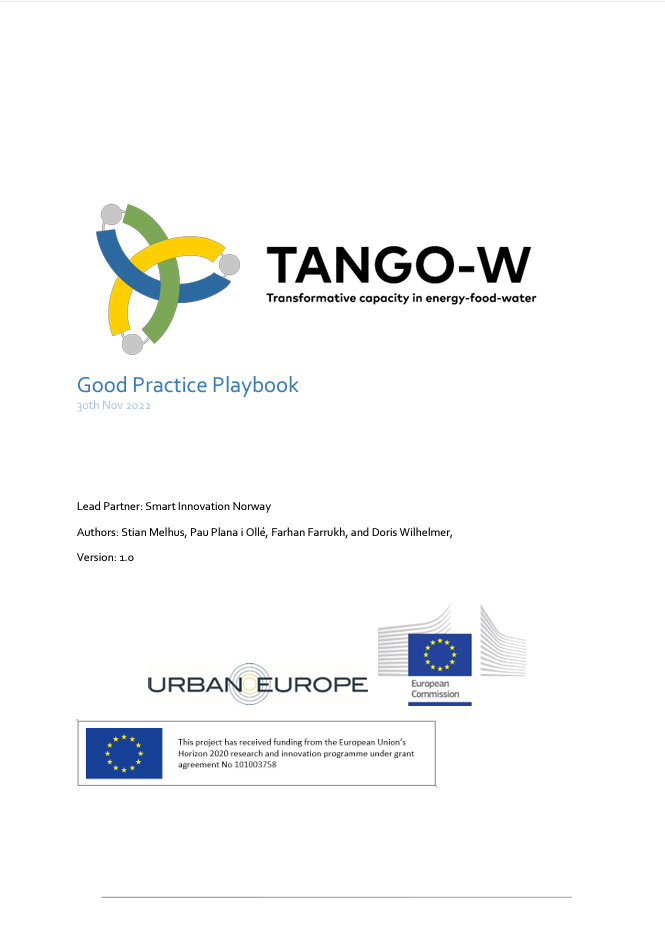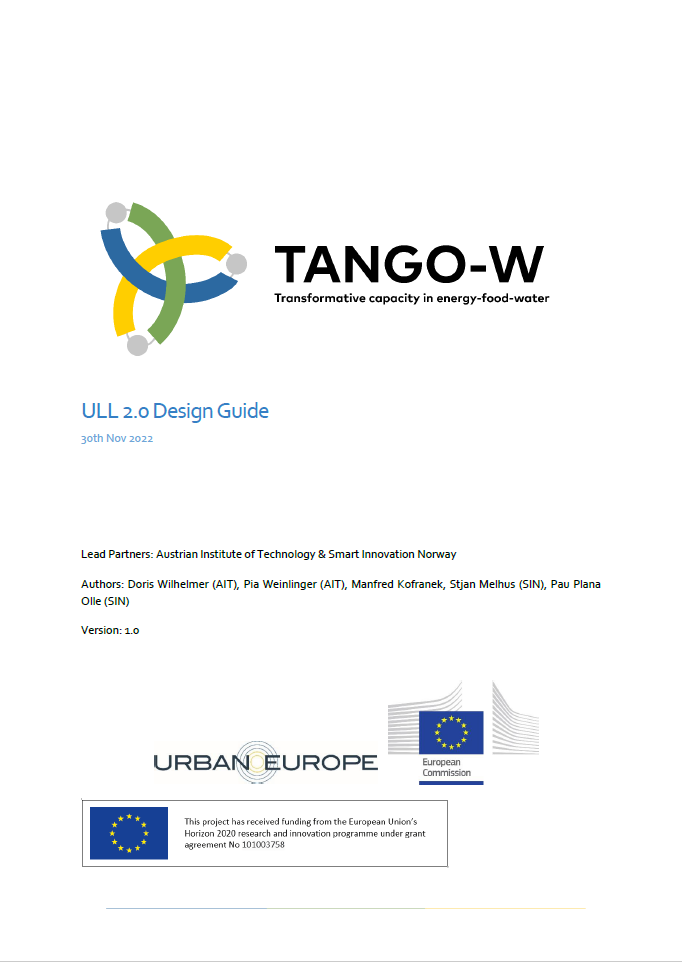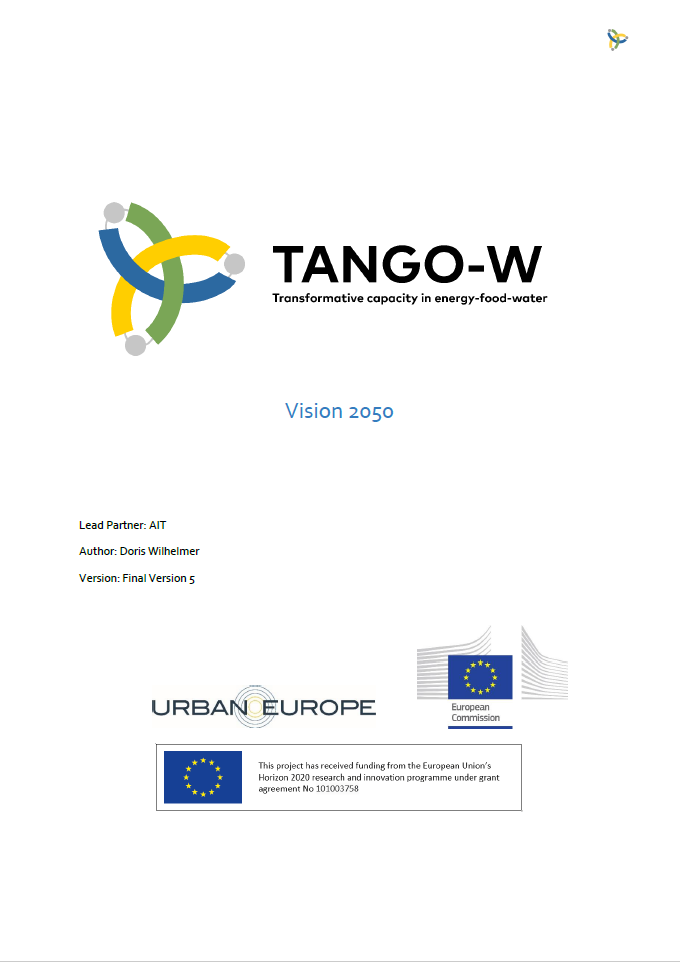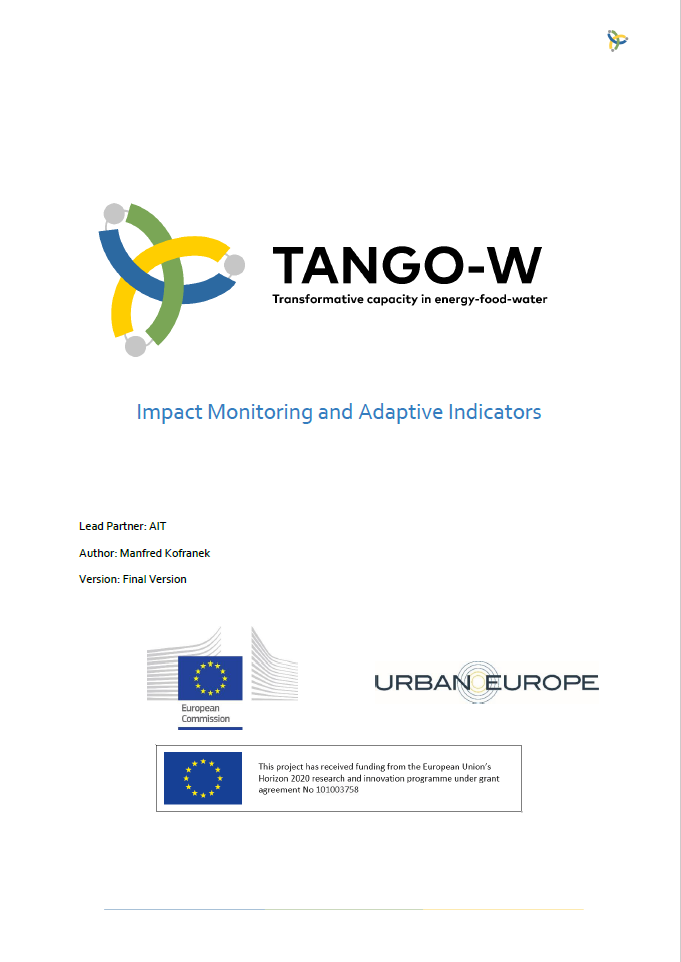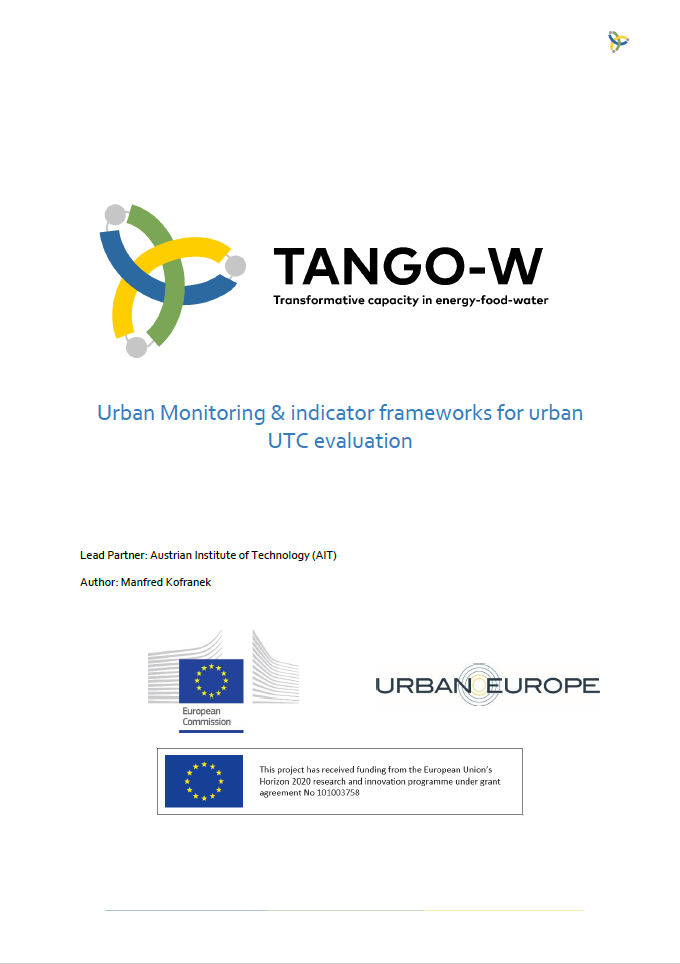TANGO-W Communities of Practices (CoPs)
The buzzword Community of Practice (CoPs) was coined in 1991 by Jean Lave and Étienne Wenger. They placed learning in the context of social relationships. CoPs are defined in terms of content by a common area of interest. At the social level, it involves a community of practitioners who share experiences and information while building relationships with each other. In doing so, they develop a shared repertoire of experiences, tools, and problem-solving methods - in short, a shared practice.
The implementation is done through 12 supervised online CoPs in the local Living Labs and 6 f2f CoPs, where the whole TANGO-W is involved in the learning process. At the same time, it is about the joint implementation of sustainable solutions in the fields of energy, food and water within the Living Labs on a national level. Within the CoPs, system learning (linking TANGO-W ULLs with all project partners), building a strategic framework (adaptive vision), supervising the implementation, execution and monitoring of the Living Labs, and building a transformative coalition for possible follow-up projects is carried out.
TANGO-W publications:
Access deliverables from the project
Empowering Transformative Urban Futures: Implementing Urban Transformative Capacity in Public Administration
Published: February 2025
Lead partner: Nordregio
Authors: Luciane Aguiar Borges (NR), Lisa Rohrer (NR), Anna Berlina (NR)
TANGO-W Curriculum and skill trainings
Published: February 2025
Lead partner: Austrian Institute of Technology
Authors: Doris Wilhelmer (AIT), Anja Wingstedt (SIN), Luciane Aguiar Borges (NR), Pia Weinlinger (AIT)
Urban Transformative Capacities: good practice guide for replication
Published: February 2025
Lead partner: Smart Innovation Norway
Authors: Thomas N. Mikkelsen (SIN), Thomas Nacht (4ward Energy), Doris Wilhelmer (AIT)
Guideline for Transformative Governance for Widening Urban Transformative Capacity
Published: February 2025
Lead partner: Austrian Institute of Technology
Authors: Doris Wilhelmer (AIT), Manfred Kofranek (AIT), Pia Weinlinger (AIT)
Needs and challenges of ULLs for building urban transformative capacity: Analysis and mapping of strategic and prototype cases in Austria, Lithuania, Norway, and Sweden
Published: October 2022
Lead Partner: Nordregio
Authors: Luciane Aguiar Borges and Lisa Rohrer, with contributions from Doris Wilhelmer
Good Practice Playbook
Published: November 2022
Lead Partner: Smart Innovation Norway
Authors: Stian Melhus, Pau Plana i Ollé, Farhan Farrukh, and Doris Wilhelmer
ULL 2.0 Design Guide
Published: November 2022
Lead Partners: Austrian Institute of Technology & Smart Innovation Norway
Authors: Doris Wilhelmer (AIT), Pia Weinlinger (AIT), Manfred Kofranek, Stjan Melhus (SIN), Pau Plana Olle (SIN)
Impact Monitoring and Adaptive Indicators
Lead Partner: Austrian Institute of Technology (AIT)
Author: Manfred Kofranek
Urban Monitoring & indicator frameworks for urban UTC evaluation
Lead Partner: Austrian Institute of Technology (AIT)
Author: Manfred Kofranek
TANGO-W CoPs:
Below, you can learn more about the three CoPs in the TANGO-W project

Energy
The energy CoP aims to raise awareness for the shared use of renewable energy sources. Opportunities to increase the share of renewable energy are addressed as well as concepts for energy sharing, through which formally passive consumers become active participants in the energy system. The CoP will be carried out on two levels:
- the local level specific pilot actions, like the establishment of a renewable energy community in the city of Klagenfurt (AT)
- the international level - there will be an exchange of experience between the project partners on the different initial situations, requirements, also barriers of the participating countries will be discussed
With all these aspects, the focus will be on the intersections of the energy sector with the other sectors in the framework of the Food-Energy-Water Nexus.

Food and Water
The goal of the CoP Food & Water in the TANGO-W project is to explore and share knowledge about the nexus food-water and ultimately making this bond visible to a larger part of society to change mindsets. The organisations contributing to this CoP are:
- Smart Innovation Norway, responsible of the scientific investigation related to Norwegian cases;
- the municipalities of Halden and Marker in Norway that will explore strategies to initiate innovative thinking beyond the silo-thinking;
- Stockholm municipality that will work with the roadmap for building a change coalition network in the city;
- Campus Roslagen, a municipal company in Norrtälje, that through the implementation of the demo site will build a transformation system in a housing association
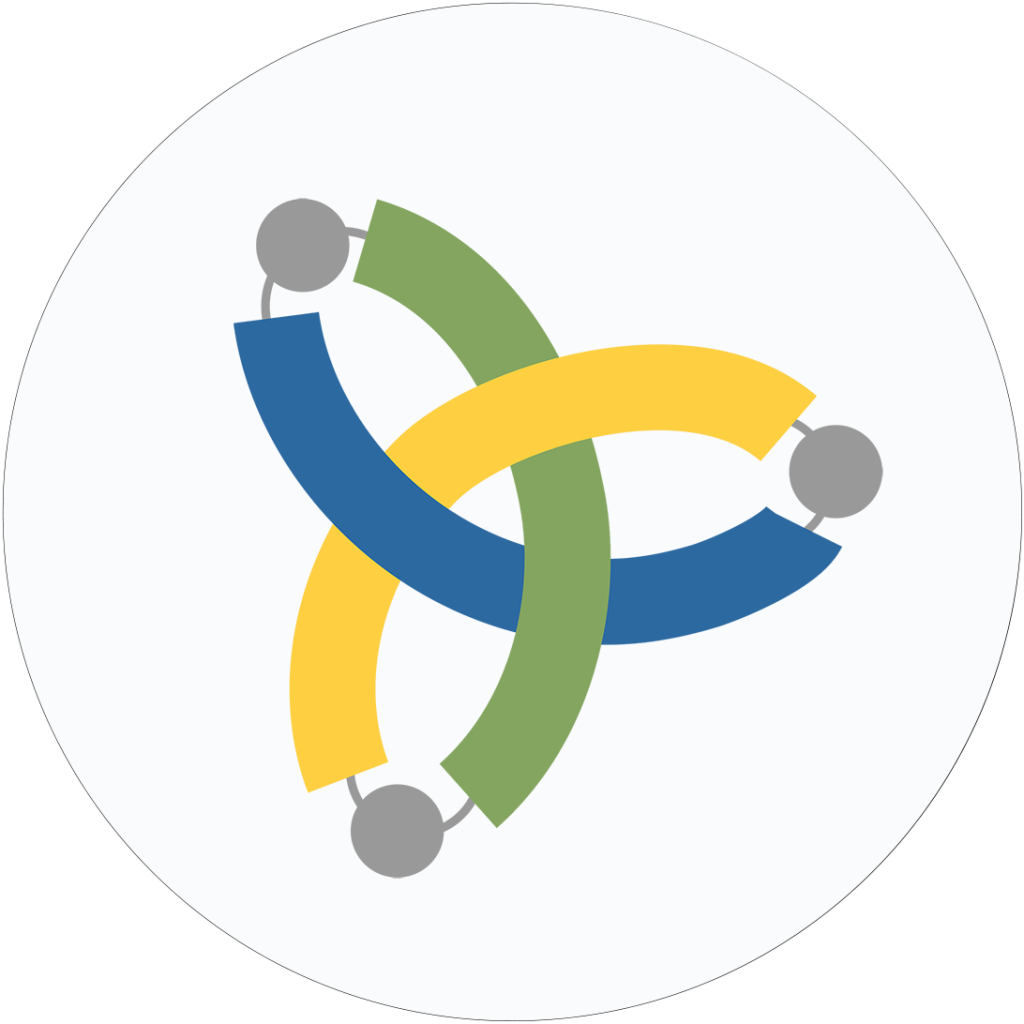
Urban Transformation Capacity (UTC)
Urban Transformation Capacity (UTC) CoP aims to practice learning of cities, research organizations, and ULL project partners. UTC was defined by Wolfram as the collective ability of actors involved in urban development to conceptualize, prepare, initiate, and execute path-departing change toward sustainability within and across multiple complex systems.
The focus of TANGO-W UTC-CoP is on building the sustainable transformation capacity of cities. How mindsets, roles, and cooperation/decision-making game rules can be changed is investigated.
